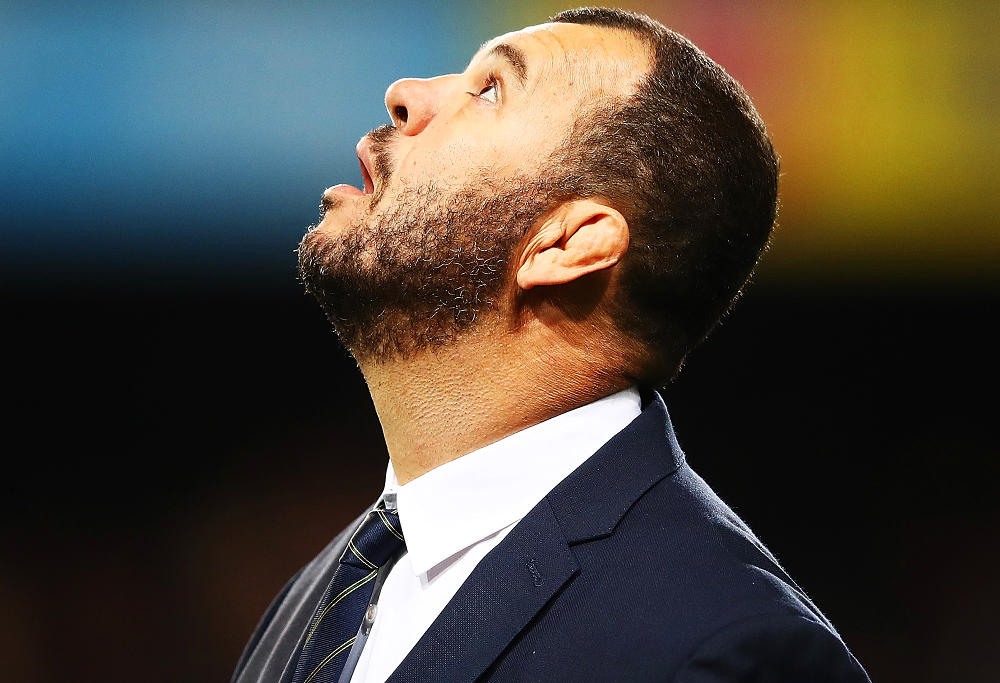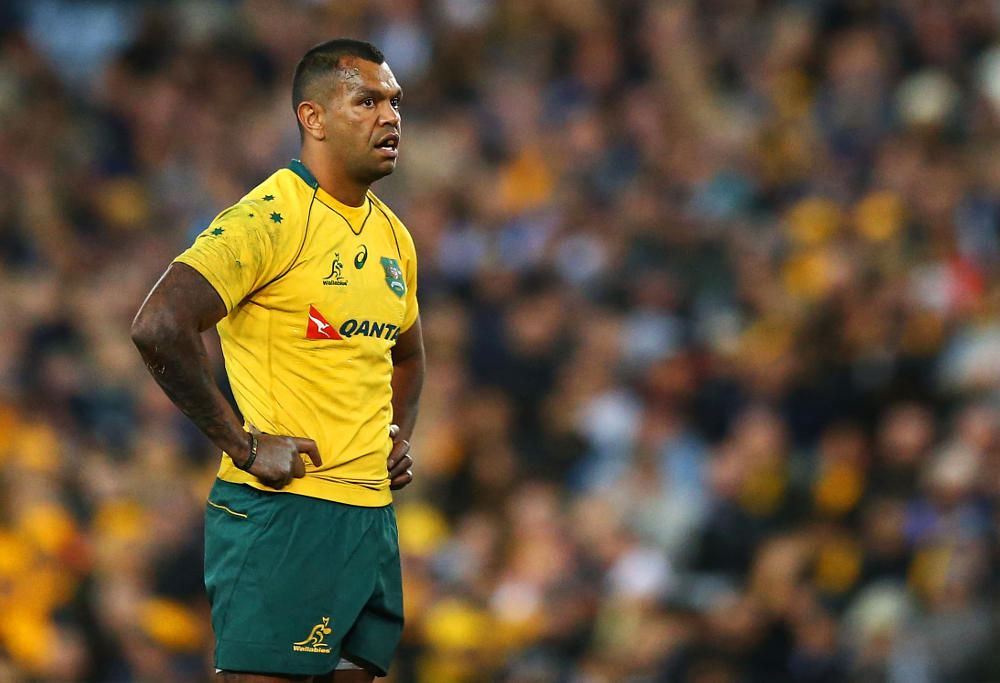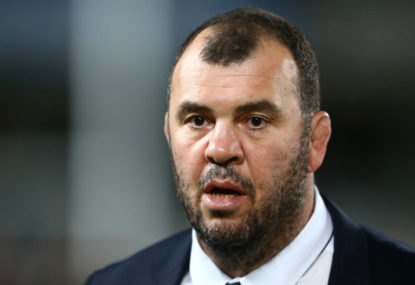Moments before going on air on Saturday afternoon, I mentioned on Twitter that I was about to be on the national ABC Grandstand program discussing the Wallabies’ chances later that evening in the second Test of the Bledisloe Cup series for 2017.
The first of several replies came through within seconds; all of them suggesting that it should probably be a short conversation, or that the Wallabies’ chances in Dunedin fell somewhere between ‘Buckley’s’ and none at all.
It’s fair to say that there wasn’t a lot of confidence floating around among Wallabies fans heading into the game, a remnant still lingering from the previous weekend, where only a seductive scoreboard prevented the All Blacks from running up a proper cricket score in Sydney.
And I don’t mind admitting to holding similar fears. Indeed, I agreed to head out for dinner with the family, with the recorder all queued up, and my confidence high that I wouldn’t have to worry about anyone blurting out scores in a restaurant. The worst, I figured, is that a score being checked on a phone would be followed by an agonising sigh.
Several hours after kick-off, and with incoming text messages and any other chances of score-spoiling being expertly ignored, I nervously hit play with the result still unknown.
Two hours after that, the feeling was equal parts heartbreak at the Wallabies’ loss of a game they had several opportunities to win, and stunned pride that just seven days after playing like they should have been beaten by fifty, the Wallabies finished just one late defensive lapse away from squaring the Bledisloe series for 2017.
The magnitude of the turnaround was quite extraordinary.
After a week of heavy criticism, and a disturbing admission that he’d been getting abusive emails after the Sydney loss, Michael Cheika came in for more criticism after naming the side for Bledisloe 2 he did last Thursday.
Yet all that criticism – and abuse, sadly – aside, Cheika’s efforts in moving on from the Sydney debacle and reigniting the playing group as he did really cannot be understated.

(Photo by Hannah Peters/Getty Images)
I genuinely can’t recall a better Wallabies bounce-back after a loss. I’ve given this a fair bit of thought over the last few days, and I just cannot recall a better performance after such an ordinary showing a week earlier.
Wallabies side of the recent past might have been able to put together a few passages of nice play the week after a heavy defeat, but never a polar-opposite performance like we saw in Dunedin.
And that’s why this loss stings like it does. A team thought to have literally no chance heading into a match very nearly did the unthinkable. And would’ve been deserving winners, too.
Questions flowing after the match, as to whether the Dunedin performance is but a blip, or yet another false dawn are completely valid. As Wallabies fans, it’s not unhealthy to retain such scepticism, and certainly, the proof or otherwise will be played out against South Africa in Perth in ten days’ time.
Long-time readers won’t mind me trotting out the old favourite again: the Wallabies aren’t as good as their last game, but rather, their next.
Until then, the depth of the despair and the anguish within Australian rugby this year means that enjoying everything that was very good in Dunedin is not misplaced. Just as the All Blacks will be wanting to learn their lessons, and improve on the areas they were shown up in, the Wallabies need to build on this momentum.
For one thing, they have found ways through and around the All Blacks’ defence. Going into this series, New Zealand had conceded only 22 tries in 18 games going back to the start of last year, and of which the Wallabies were responsible for just two.
They’ve now scored nine tries in their last two Bledisloe matches; nine tries in their last 110 minutes, if you’re trying to heed medical advice and forget about the first fifty minutes in Sydney.
The Wallabies’ defensive alignment was more effective, and with significantly fewer moving parts. The sight of Bernard Foley and Kurtley Beale defending in their respective positions was to behold, and that was even before Beale started not just containing Sonny Bill Williams, but genuinely dominating the All Blacks second-five in the contact.

(Photo by Mark Nolan/Getty Images)
Foley, similarly, was all over Beauden Barrett early, and it was noticeable that the Wallabies weren’t sending lone ‘shooters’ up out of defence, but rather a central group of three or four defenders who would then slide sideways in defence from there. There were few opportunities for the All Blacks to find space in behind Wallabies’ defenders, and that, along with the early scoreboard pressure, forced mistakes of the world champions.
He’s been copping due criticism, but full credit to Nathan Grey for finding a much-improved defensive solution so quickly.
Of course, that’s not to say it was perfect, because it obviously wasn’t. Another 32 missed tackles on top of more than forty the week before says that the tackling techniques have plenty of room for improvement. And it was a defensive misread, or a couple of them, that created the space for the All Blacks to take advantage of in the 80th minute.
Foley’s goal kicking needs some work too, though I do think criticism for hitting the post three times is well and truly on the harsh side of the ledger.
If he’d badly hooked all four misses, then the criticism would be valid. But in hitting the post, you’re only ever a centimetre or two off deflecting between the uprights; to hit the upright three times, with all three hitting dead square-on and not deflecting either way… well, that’s just incredibly unlucky.
And I reckon if even just one of those three deflected through, the criticism would be reduced to slight concern. As it stands, my records tell me it’s the first time he missed more than two attempts in one game this season; he’s not a poor kicker after one night.
In time, history will show another trans-Tasman Test Match lost, and the Bledisloe Cup stained by Steinlager for a fifteenth straight year.
Hopefully, though, it will also be recognised as the match in which this current Wallabies playing group finally worked out what they’re capable of.
Considering where they’d come from, the Wallabies should – and must – take plenty of confidence from the way in which they were able to turn their fortunes around.
It was too good a performance to have learned nothing from it.































































































